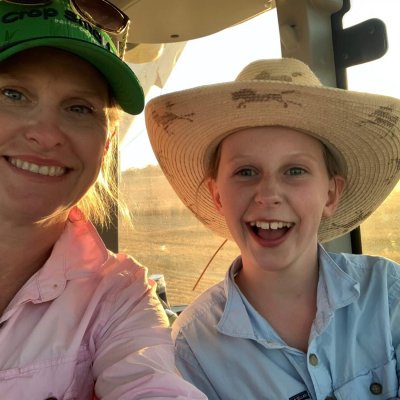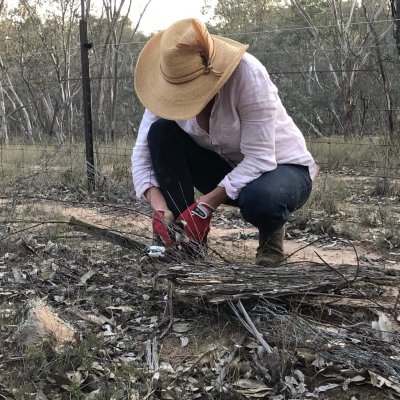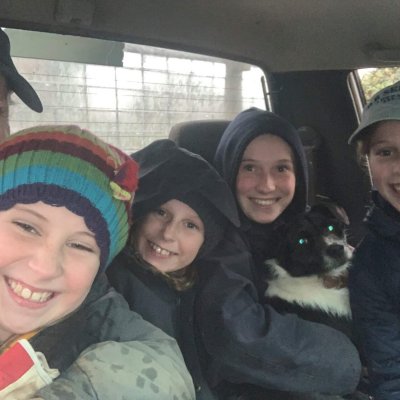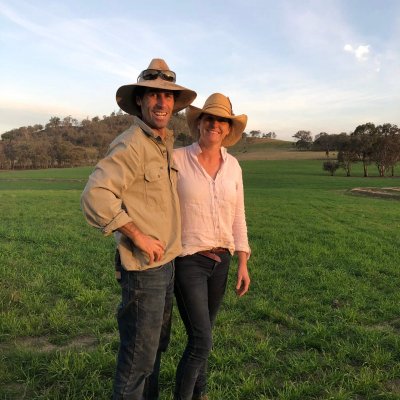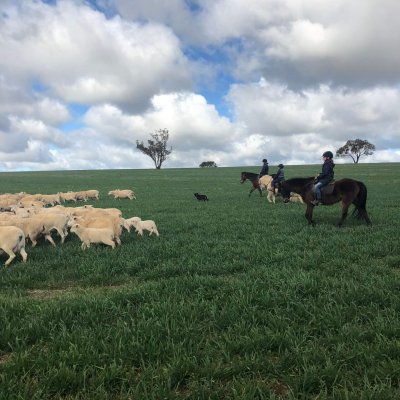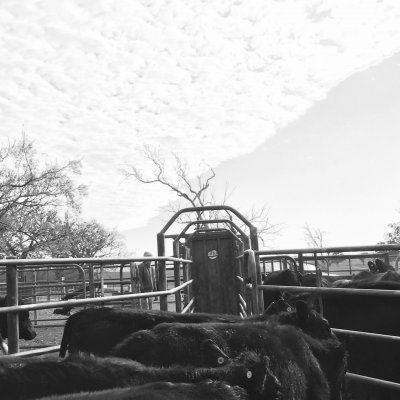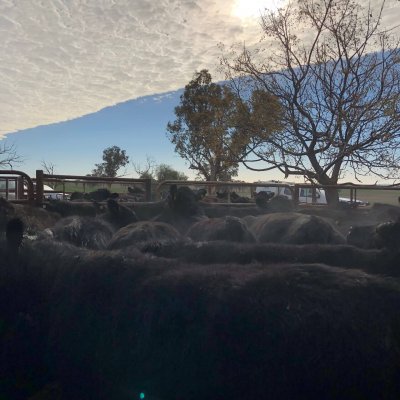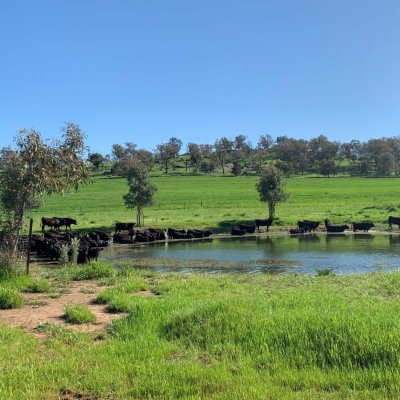Growing up on a sheep and cattle property, working as a rural and remote area nurse, managing her work health assessment consultancy and ultimately, wrangling her husband, four daughters and a mixed farming enterprise – Shannon Corbett has seen her fair share of ‘incidents’. Based in the heart of the New South Wales Riverina, there’s no doubt that Shannon is a quintessential multi-tasker, with compassion, capability, and tenacity to boot. And if there’s one thing she’s more passionate about than virtually anything with the word ‘rural’ in front of it, it’s health and safety.
When asked what concerned her about the health, safety and wellbeing of those in rural industries and communities, Shannon recalled a personal run-in with a faulty field bin – a life-changing moment where she came to the resounding realisation that she too needed to slow down, and that everyone has their limitations. And while gloves, helmets, sunscreen, glasses and earmuffs are staple items in the Corbett household, it’s getting up her husband’s nose with her catch-cry mantra that ‘broken equipment breaks people’ that’s the real gamechanger. In her view? Too many people get too used to working with dodgy gear, and forget the perils of the thin ice they’re skating on.
Reflecting on her career in occupational health, Shannon also highlighted a telling insight into the notorious stereotype that “rural people are very tough” – with injuries and illnesses often described (and medically interpreted) as “not so bad”, when in actual fact, they’re the complete opposite. Her advice? Listen to your instincts, and get your butt (or your loved one’s butt) to a hospital, pronto. “Don’t disregard the pain, injury or illness. Get help. You deserve it.”
How would you describe yourself in three words?
Loyal, capable and noisy.
Tell us something interesting about yourself...
I grew up near the small town of Dirranbandi on a sheep and cattle property with my parents and 3 siblings. I’m married to a great bloke, with 4 lovely daughters and we live on a farm near Junee, NSW. I run a small business doing health assessments for companies and together, Pete and I run a mixed farming enterprise in the Riverina.
I’d never thought of my life being unusual or interesting until I met people who hadn’t lived and loved rural Australia.
What achievements are you most proud of?
Our 4 beautiful daughters. They are kind, hardworking, funny and clever. I’d like to think we are creating great human beings.
What makes you truly happy?
Summer evenings on the cool lawn with kids, dogs, beers and chips.
What do you love the most about being a rural woman?
As a ‘rural girl’ there was no room for chauvinism as the work had to be done, despite our gender.
As a ‘rural family’, I feel we have space, freedom and a buffer from reality.
As a ‘rural woman’, I feel proud of my heritage. I come from a long line of strong, capable rural women and I’d like to think I am continuing that.
Tell us about a time when you felt worried about your own or someone else’s health, safety or wellbeing.
I’ve witnessed many incidents throughout my childhood and as a nurse working in rural and remote areas. But for me, during the 2011 canola harvest I had a run-in with a faulty field bin. The metal bar that lifts the bin off its wheels hit me. For several minutes I thought I was paralysed. I lay in the dirt, not believing I could be so stupid. I had fractured my pelvis, but I could walk. I had had a very lucky escape. From the scariest moment I learned to slow down and understand my limitations (apparently I’m not Elastogirl!).
What practical things did - or could - you or someone else do to prevent yourself or someone else from getting hurt?
Gloves, helmets, sunscreen, glasses and ear-muffs are the obvious ones. But I have a mantra that usually gets up people’s (i.e. husbands) noses – ‘Broken Equipment Breaks People’. Sometimes we are so used to working with the idiosyncrasies of broken or damaged equipment that we don’t realise how dangerous it can be.
"Occasionally, I make dramatic statements like 'There's going to be a major injury if that (insert broken equipment) isn’t fixed!’. Given the greater proportion of our workforce is our children, that usually gets the attention it deserves."
Shannon Corbett, Yathella, New South Wales AU Tweet this
Is there a time, place or scenario when your partner or those you work or spend time with are more willing to make changes to the way the work is done, or are more open to making safer, healthier choices?
Pete and I work together on farm and our desks are close together in the office. Needless to say, we see A LOT of each other! There are endless conversations, but change can be slow and dependent on time and budget. Occasionally, I make dramatic statements like ‘There’s going to be a major injury if that (insert broken equipment) isn’t fixed!’. Given the greater proportion of our workforce is our children, that usually gets the attention it deserves.
If you could give any advice to another rural woman about health, safety and/or wellbeing in rural industries and communities, about influencing change in business - or just in general - what would it be?
Having worked in metropolitan, rural, remote and international hospitals and health clinics, I’ve noticed that (no surprises here) ‘rural people are very tough’. Sometimes, to their own detriment, when ‘toughness’ can be misinterpreted by metro-trained medical staff as ‘the situation’s not so bad’. So, my advice: should you have to present yourself – or a loved one – at a hospital, listen to your instincts. You are the only advocate. Don’t disregard the pain, the injury or the illness. Get the help you deserve.
Is there anything else you'd like to share?
Life on the land is superb and we cherish it.
